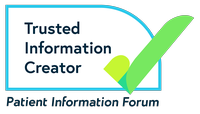What is acute myeloid leukaemia (AML)?
Acute myeloid leukaemia (AML) is a type of blood cancer that causes myeloid stem cells in your bone marrow to produce too many underdeveloped white blood cells.
Normally, white blood cells help your immune system work well. But when you have AML, these undeveloped white blood cells fill up your bone marrow. When your bone marrow is too full, it cannot produce all the different types of healthy blood cells you need.
As there are different types of AML, your symptoms will depend on:
- your diagnosed type of AML
- the amount of leukaemia cells in your body
- where in your body the leukaemia cells are found.
How many people are diagnosed with AML?
Around 3,100 people are diagnosed with AML each year in the UK. It is more common in people over the age of 75.
Treatments for AML
AML is an ‘acute condition’, which means it develops quickly and needs treatment as soon as possible. You’ll probably need to start some sort of treatment right after diagnosis:
- chemotherapy as the main treatment, but this can depend on the type of AML you have.
- stem cell transplant, is a common course of treatment for AML.
Most transplants for AML are allogeneic transplants – this means someone else donates their stem cells. It’s quite rare to treat AML with an autologous transplant – this means using your own stem cells.
If doctors can’t find a stem cell donor, they might decide to try an autologous transplant rather than palliative care.
How many people have a stem cell transplant to treat AML?
There were 576 stem cell transplants in the UK to treat AML in 2023.
AML is the most common reason for having an allogeneic transplant.
Lauren's story
Lauren, from Northern Ireland, had a stem cell transplant to treat her AML.
Video chapters
00:00 - Intro
00.26 - What led you to being diagnosed with AML?
01.08 - How did it feel to be told you needed a transplant?
01.45 - What was that experience like for you?
04.15 - What advice would you give someone who is about to go through what you went through?
06.02 - How are you doing now, and how is your recovery going?
Where to find support for AML
Anthony Nolan supports people with all sorts of conditions that might use stem cells or cell therapies for treatment. But other organisations support people affected by specific blood cancers like AML.
To find out more about AML symptoms, diagnosis and treatments, you can visit:
To find advice and support for living with cancer, you can visit:
Since my transplant, I feel that life is definitely for living. I try not to waste one moment of it anymore.
Harun, who had a stem cell transplant to treat acute myeloid leukaemia (AML)
